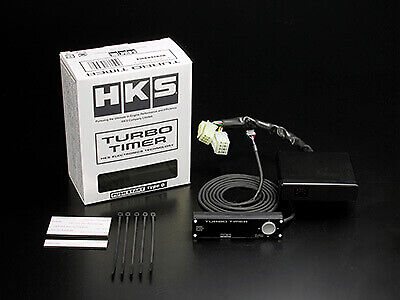What is a Turbo Timer?
The purpose of a turbo timer is to protect the turbo from premature wear after being driven on boost for any length of time. A turbocharger is a device that compresses air and forces it into the engine, which results in a more powerful explosion and more engine power. Turbochargers can spin at over 200,000 rpm and require lubrication and cooling from engine oil or water. When a turbocharged car is switched off straight after being driven, the oil feed to the turbo stops, which can cause premature wear.
How Does a Turbo Timer Work?
A turbo timer measures how much boost has been used, for how long, and how recently in the journey. It is wired into the ignition circuit or ECU and overrides the ignition switch to keep the engine running when the ignition is turned off. The timer counts down for however long it deems necessary to cool the turbo, which may be a few minutes if the car has been driven gently or several minutes if it has been driven hard.

Does my car need a Turbo Timer?
Although it is not necessary to have a turbo timer, it is important to take care of the turbo to ensure its longevity. Regular oil changes with good quality oil are recommended, and if a turbo timer helps you remember to let the engine run for a few minutes after driving, it may be a worthwhile addition. Turbo timers are relevant for any car with a turbo, although they are most commonly found on performance cars.
Can a Turbo Timer be disabled?
Typically, turbo timers can be deactivated with an external switch, which is commonly linked to the handbrake switch or an automatic switch.



